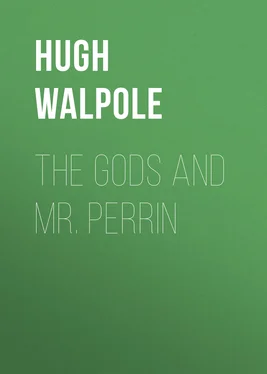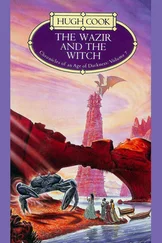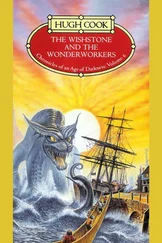Hugh Walpole - The Gods and Mr. Perrin
Здесь есть возможность читать онлайн «Hugh Walpole - The Gods and Mr. Perrin» — ознакомительный отрывок электронной книги совершенно бесплатно, а после прочтения отрывка купить полную версию. В некоторых случаях можно слушать аудио, скачать через торрент в формате fb2 и присутствует краткое содержание. Жанр: foreign_dramaturgy, foreign_antique, foreign_prose, на английском языке. Описание произведения, (предисловие) а так же отзывы посетителей доступны на портале библиотеки ЛибКат.
- Название:The Gods and Mr. Perrin
- Автор:
- Жанр:
- Год:неизвестен
- ISBN:нет данных
- Рейтинг книги:3 / 5. Голосов: 1
-
Избранное:Добавить в избранное
- Отзывы:
-
Ваша оценка:
- 60
- 1
- 2
- 3
- 4
- 5
The Gods and Mr. Perrin: краткое содержание, описание и аннотация
Предлагаем к чтению аннотацию, описание, краткое содержание или предисловие (зависит от того, что написал сам автор книги «The Gods and Mr. Perrin»). Если вы не нашли необходимую информацию о книге — напишите в комментариях, мы постараемся отыскать её.
The Gods and Mr. Perrin — читать онлайн ознакомительный отрывок
Ниже представлен текст книги, разбитый по страницам. Система сохранения места последней прочитанной страницы, позволяет с удобством читать онлайн бесплатно книгу «The Gods and Mr. Perrin», без необходимости каждый раз заново искать на чём Вы остановились. Поставьте закладку, и сможете в любой момент перейти на страницу, на которой закончили чтение.
Интервал:
Закладка:
“Oh! please, Miss Desart—of course, I’ll see you back. Good night, Mrs. Comber. Thank you so much—I’ve loved it. Good night, Comber. Night, Perrin. Look out, Miss Desart, it’s dark.”
Perrin felt his band just touched by Miss Desart’s, and her voice, “Good night, Mr. Perrin.”
He was left alone on the step.
I don’t suppose that at this stage of things Isabel bad the very slightest idea of all the emotions that had been in play that evening. Her bead, as they walked away down the dark gravel path, was full of her hostess.
“Poor Mrs. Comber,” she said, and then checked herself as though there were some disloyalty in talking about her. “I hate Mrs. Dormer,” she added quietly.
“I don’t like her,” Traill said. “And Dormer’s such a jolly little man. I don’t envy; him.”
“Oh! I don’t suppose it’s her fault any more than it’s anyone’s fault here about anything they do. It’s all a case of nerves.”
There was going to be a storm soon. Already that little preparatory whisper of the wind, the ominous, frightened rustle of the leaves down the path, was about them. It was all very dark, with a curious white light on the horizon, and the dark buildings of the Lower School huddled against it in sharp, black outline like the broad backs of giants bending to the soil.
The scent of trees—vague and uncertain in the daytime, but now clear and pungent—was borne through the air, and the voice of the sea, rolling in long, mournful cadences far below the hills, came up to them. The wind’s whisper grew into a furious, strangled cry; little eddies of it swept about their feet, and cascades of withered leaves fell wildly against them and were blown, sweeping, streaming away.
They were silent. Traill was thinking of her voice. It was so grave and assured and restful. He thought that he could trust her tremendously. But there was reserve in it too, and he felt, a little hopelessly, that he might never perhaps get to know her better.
When they got to the lodge gates, they stopped and stood for a moment silently.
Then she said, looking very gravely in front of her at the dark bend of the road, “There must be such a storm coming up. I feel it all through me. It was depressing to-night, was n’t it?”
“Just a little,” he said.
“Anyhow, I’m glad you like it—being here. Mind you always do. I don’t want to be pessimistic when you are just beginning; but—well, you don’t mean to stay here for ever, do you?”
“I should think not,” he answered eagerly. “Only a term or two at the most, and then I hope to go back to Clifton, my old school.”
“That’s right—because—really it isn’t a very good place to be—this.”
“Why not?” he asked.
“It’s difficult to explain without maligning people and making things out worse than they really are.” She paused a moment, and then she went on: “Do you know, at the bottom of the hill, just before you get into the village, a melancholy orchard? One always passes it. You will see at the right time of the year lots of green apples on the trees, but they never seem to come to anything. And such blossoms in the spring! I ‘ve seen men working there sometimes. I don’t know what it is, but nothing ‘s any good there. They call it in the village ‘Green Apple Orchard.’… Well, I’ve stayed here a great deal, and there’s an obvious comparison.”
“That’s cheerful,” he said, laughing. “It would, I suppose, be awful if one had to stay here for ever like Perrin and Dormer and the rest of them; but this time next year will see me somewhere better, I hope.”
“Mind you stick to that,” she said eagerly. “I have a horrible kind of feeling that they all meant to go very soon; but here they are still—soured, disappointed. Oh! it doesn’t bear thinking of.”
“One must have ambition,” he answered her confidently.
She smiled at him, and took his hand, and said good night.
He went, smiling, to his room. As he climbed into bed, the storm broke furiously.
CHAPTER IV—BIRKLAND LOQUITUR
AT the end of his first month young Traill looked back, as it were from the top of a hill, and thought that it all had been very pleasant. How much of this pleasantness was due to Isabel (although he had seen her during that period extremely seldom) and how much of it was due to his agreeable acceptance of things as they were without any very definite challenge to them to be different, it is impossible to say.
The crowded day had of course something to do with it: the fact that there was never from the first harsh clanging of the bell down the stone passages at half-past six to the last leap into bed, jumping as it were from a heap of Latin exercises and the cold challenge of Perrin’s voice as he went round the dormitories turning lights out—never a moment’s pause to think about anything extra at all. But he was in no way a reflective person. He saw that his own small boys in their untidy, scrambling kind of way liked him and that the bigger boys of the Upper Fourth, to whom he taught French twice a week, revered him because of his football.
The masters at the Upper School seemed pleasant fellows, although he might, had he thought about it, have perceived dimly an atmosphere of unrest and discomfort in their common room.
With Moy-Thompson as yet he had had no dealings at all. He had been to supper there once on Sunday night, had been appalled by the dreariness of the whole affair, the shrivelled ill-temper of Moy-Thompson’s parents (aged about ninety apiece), the inadequacy of the food, the melancholy inertia of Mrs. Moy-Thompson; but he had had no nearer relations with him.
He had, indeed, already begun to perceive that in his own common room things were not quite as they should be. He was always an exceedingly equable and easy-tempered person, and he had been surprised at himself on several occasions for being irritated at very unimportant and insignificant details. There were, for instance, the incidents of the bath and the morning papers. Both of these incidents derived their irritation from their original connection with Perrin, and this might have led him, had he thought about it, to the discovery that he did not like Perrin and that Perrin did not like him. But he never dwelt upon things—he was always thinking of the matter immediately in hand, and where there was an empty reflective quarter of an hour his eyes were on Isabel.
The incident of the bath was, it might have been thought, inconsiderable.
Perrin’s bedroom was next to Traill’s. Opposite their doors, on the other side of the passage, was a bathroom containing two baths. In this bathroom Traill always arrived some minutes after Perrin. Try as he might, he never succeeded in arriving first. Perrin always filled both baths, one with hot and one with cold, and stood moodily, his naked body gaunt and bony in the gray light, watching them whilst they filled. Traill was forced to wait until Perrin had had both his baths before he could have his. At first it had seemed a small matter. Gradually as the days passed the irritation grew. There was something in Perrin’s complacent immobility as he stood above his bath that was of itself annoying. Why should a man wait? One morning they rushed out together. There were words.
“I say, Perrin, why not have hot and cold in the same bath?”
“Really, Traill, it isn’t, I should have thought, quite your place....”
Traill sometimes dreamt early in the morning of French exercises, of the midday mutton, of Perrin’s bony, ugly body watching the bath. If Traill had thought about it, he would have seen that Perrin did not like him.
The incident of the morning paper was equally trivial. Dormer always had breakfast in his own house, and that left therefore three of them. They clubbed together and provided three newspapers—the Morning Post , the Daily Mail , and a local affair. It was obvious that the person who came in last was left with the local paper. Perrin generally came in last, because he took early prep, in the Upper School, and he expected that the Morning Post should be left for him. But Traill, as he paid the same subscription as Perrin, did not see why this should be. Clinton always took the Daily Mail , and therefore Perrin had to be contented with the Cornish News . There was at last an argument. Traill refused to give way. The rest of the meal was eaten in absolute silence. Perrin came no more to Traill’s room for an evening chat—a very small matter.
Читать дальшеИнтервал:
Закладка:
Похожие книги на «The Gods and Mr. Perrin»
Представляем Вашему вниманию похожие книги на «The Gods and Mr. Perrin» списком для выбора. Мы отобрали схожую по названию и смыслу литературу в надежде предоставить читателям больше вариантов отыскать новые, интересные, ещё непрочитанные произведения.
Обсуждение, отзывы о книге «The Gods and Mr. Perrin» и просто собственные мнения читателей. Оставьте ваши комментарии, напишите, что Вы думаете о произведении, его смысле или главных героях. Укажите что конкретно понравилось, а что нет, и почему Вы так считаете.











